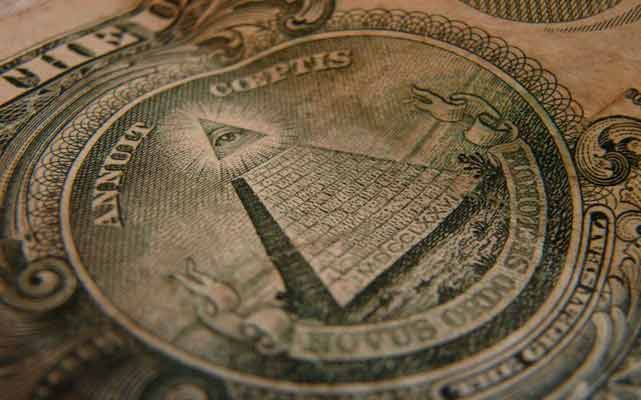USD/CAD Forecasts Lowered for End-2025 to 1.44 at HSBC
- Written by
Frank Davies

The US to Canadian Dollar exchange rate (USD/CAD) has settled around 1.3835 after the Canadian election. There have been sharp losses from 22-year highs above 1.48 recorded in the first quarter.
The focus will quickly focus on the outlook for trade talks with the US and the domestic economic impact.
ING commented; “We expect most trading into the summer to happen within the 1.37-1.40 range, and we target 1.39 for the end of the second quarter.”
Many investment banks have lowered their medium-term USD/CAD forecasts, but this is primarily due to a downgrading of US dollar forecasts rather than confidence in the Canadian outlook.
Standard Chartered, for example, has lowered its end-2025 forecast to 1.37 from 1.47 previously.
It did, however, add; “In terms of downside risks for the CAD, Canada’s high gearing to the US economy may be a double whammy for the currency.”
HSBC still sees CAD losses, but has lowered its end-2025 USD/CAD forecast to 1.44 from 1.47 previously.

According to the bank; “if sentiment around the USD should shift (e.g. it regains its safe-haven allure during a deeper global activity downswing), then the CAD could face additional headaches alongside falling risk appetite and oil prices.”
Goldman Sachs has lowered its 12-month USD/CAD forecast to 1.34 from 1.38 due to a downgrading of US prospects.
According to final election results, Prime Minister Carney’s Liberal Party won 169 seats, 3 short of an overall majority.
The NDP lost heavily with the leader losing his seat, but they will have seven seats in parliament and their support would give Carney a majority.
HSBC expects the direct election impact will be limited; “US politics rather than Canadian politics is what really matters to USD-CAD.”
In this context, Carney’s government will have to focus on trade policies.
According to Standard Chartered; “Falling political temperatures and political clarity in Canada post-federal elections should pave the way for trade talks to get back on track.”
The bank added; “The status quo that exempts USMCA-compliant goods from tariffs has helped the CAD rebound, but this exemption may be more because US, Canadian and Mexican production has become so integrated that it is hard to disentangle the value added to be tariffed. Canada may face additional tariffs once those issues are resolved, and that could quickly take USD-CAD above 1.40.
Fiscal policy will also have a potentially significant impact with pressure for additional spending, especially if the economy deteriorates.
CIBC noted that the election has delayed the budget; “Typically, that would have taken place in March, but having been delayed by the election, we're likely looking at June.
It added; “So its going to be a busy spring for investors with interests in Canada's bonds, foreign exchange and equities with sensitivity to environmental, regulatory and trade policies.”
Goldman Sachs expects there will be an impact on monetary policy; “we expect increased spending under a Liberal government to lower the urgency for further BoC rate cuts and limit the Governing Council’s willingness to cut below 2.25% from 2.75% now.
According to BNY Mellon, overall capital inflows into Canada have held firm.
The bank discussed the recent performance; “Canada tariff exemptions and an improvement in valuations saw cross-border investors return in earnest. The run-up to the election continued to see a strong period of cross-border inflows into CAD as well.”
It added; “This divergence between onshore and offshore interest is rare for CAD, but as the latter group drives marginal flow, the post-election relief should be strong enough to sustain CAD resilience.”
Investment banks are still wary over the Canadian economic outlook.
HSBC commented; “It seems likely that the relative stickiness of Canadian rate expectations has provided some insulation. However, if the BoC’s perspective begins to stress the downside risks to growth over the potentially transitory hit to inflation, that insulation might wither. Then markets may take a fresh look at the “risk on”, oil-sensitive CAD, and reprice it belatedly lower.”
MUFG also has reservations; “We are still wary of the risk that Canada’s economy could slow more sharply in response to trade disruption and policy uncertainty requiring the BoC to cut rates deeper so are not yet convinced that recent strong gains for the Canadian dollar are built on strong foundations.
STORY LINK USD/CAD Forecasts Lowered for End-2025 to 1.44 at HSBC

The US to Canadian Dollar exchange rate (USD/CAD) has settled around 1.3835 after the Canadian election. There have been sharp losses from 22-year highs above 1.48 recorded in the first quarter.
The focus will quickly focus on the outlook for trade talks with the US and the domestic economic impact.
ING commented; “We expect most trading into the summer to happen within the 1.37-1.40 range, and we target 1.39 for the end of the second quarter.”
Many investment banks have lowered their medium-term USD/CAD forecasts, but this is primarily due to a downgrading of US dollar forecasts rather than confidence in the Canadian outlook.
Standard Chartered, for example, has lowered its end-2025 forecast to 1.37 from 1.47 previously.
It did, however, add; “In terms of downside risks for the CAD, Canada’s high gearing to the US economy may be a double whammy for the currency.”
HSBC still sees CAD losses, but has lowered its end-2025 USD/CAD forecast to 1.44 from 1.47 previously.

According to the bank; “if sentiment around the USD should shift (e.g. it regains its safe-haven allure during a deeper global activity downswing), then the CAD could face additional headaches alongside falling risk appetite and oil prices.”
Goldman Sachs has lowered its 12-month USD/CAD forecast to 1.34 from 1.38 due to a downgrading of US prospects.
According to final election results, Prime Minister Carney’s Liberal Party won 169 seats, 3 short of an overall majority.
The NDP lost heavily with the leader losing his seat, but they will have seven seats in parliament and their support would give Carney a majority.
HSBC expects the direct election impact will be limited; “US politics rather than Canadian politics is what really matters to USD-CAD.”
In this context, Carney’s government will have to focus on trade policies.
According to Standard Chartered; “Falling political temperatures and political clarity in Canada post-federal elections should pave the way for trade talks to get back on track.”
The bank added; “The status quo that exempts USMCA-compliant goods from tariffs has helped the CAD rebound, but this exemption may be more because US, Canadian and Mexican production has become so integrated that it is hard to disentangle the value added to be tariffed. Canada may face additional tariffs once those issues are resolved, and that could quickly take USD-CAD above 1.40.
Fiscal policy will also have a potentially significant impact with pressure for additional spending, especially if the economy deteriorates.
CIBC noted that the election has delayed the budget; “Typically, that would have taken place in March, but having been delayed by the election, we're likely looking at June.
It added; “So its going to be a busy spring for investors with interests in Canada's bonds, foreign exchange and equities with sensitivity to environmental, regulatory and trade policies.”
Goldman Sachs expects there will be an impact on monetary policy; “we expect increased spending under a Liberal government to lower the urgency for further BoC rate cuts and limit the Governing Council’s willingness to cut below 2.25% from 2.75% now.
According to BNY Mellon, overall capital inflows into Canada have held firm.
The bank discussed the recent performance; “Canada tariff exemptions and an improvement in valuations saw cross-border investors return in earnest. The run-up to the election continued to see a strong period of cross-border inflows into CAD as well.”
It added; “This divergence between onshore and offshore interest is rare for CAD, but as the latter group drives marginal flow, the post-election relief should be strong enough to sustain CAD resilience.”
Investment banks are still wary over the Canadian economic outlook.
HSBC commented; “It seems likely that the relative stickiness of Canadian rate expectations has provided some insulation. However, if the BoC’s perspective begins to stress the downside risks to growth over the potentially transitory hit to inflation, that insulation might wither. Then markets may take a fresh look at the “risk on”, oil-sensitive CAD, and reprice it belatedly lower.”
MUFG also has reservations; “We are still wary of the risk that Canada’s economy could slow more sharply in response to trade disruption and policy uncertainty requiring the BoC to cut rates deeper so are not yet convinced that recent strong gains for the Canadian dollar are built on strong foundations.
International Money Transfer? Ask our resident FX expert a money transfer question or try John's new, free, no-obligation personal service! ,where he helps every step of the way, ensuring you get the best exchange rates on your currency requirements.
Comments are currrently disabled
Related Stories:
- Canadian Dollar Little Moved vs Euro, Pound & US Dollar as Bank of Canada Pause - June 5, 2025
- USD/CAD Forecasts Lowered for End-2025 to 1.44 at HSBC - April 30, 2025
- Canada Election: Canadian Dollar Pares Losses as Liberals and NDP Head for Narrow Majority - April 29, 2025
- Canadian Dollar Resilient on Trade War Inflation Fears, BoC Cuts Rates to 2.75% - March 12, 2025
- Pound Close to Eight-Year Best vs Canadian Dollar as Carney New PM - March 10, 2025
- Trumps Tariffs Send Pound to Eight Year Best Exchange Rate Against Canadian Dollar - March 4, 2025
- Pound to Canadian Dollar Rate Hits 3-Week Best as US Tariffs Dominate - February 27, 2025
- Canadian Dollar Slumps to 21-Year Low as Trump Imposes Tariffs - February 3, 2025
- Canadian Dollar Weak as Bank of Canada Cuts Rates and Warns of Impact of US Tariffs - January 30, 2025
Latest News:
- GBP/USD Forecast: Pound Sterling Reclaims Ground Above $1.38 - January 29, 2026
- Pound to Euro Rate "Treads Water" as Sentiment Signals Clash - January 29, 2026
- British Pound to Euro Forecast: GBP Reclaims 1.15 as EUR Rally Pauses - January 29, 2026
- Pound-to-Dollar Forecast: Four-Year Best GBP Rate on Crisis of Confidence - January 29, 2026
- Pound-to-Euro Rate Flat as Defence Risks Offset German Data - January 28, 2026
- GBP/USD Forecast: Pound Sterling Dips as Trump Comments Slow Dollar Slide - January 28, 2026
- Pound to Euro Forecast: GBP Clings On as EUR/USD Surge Dominates - January 28, 2026
- Pound Sterling to Dollar Forecast: Can GBP/USD Hold Above 1.37? - January 28, 2026
- GBP/USD Forecast: Pound Sterling Edges Higher as USD Headwinds Mount - January 27, 2026
- Pound to Euro Today: Rangebound as Markets Await ECB Signals - January 27, 2026









